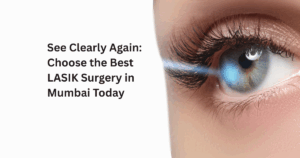There is a rising prevalence of health conditions like diabetes, and due to those conditions, problems like diabetic retinopathy are becoming increasingly common conditions among people. These diseases affect the eyes badly and often lead to partial or even total loss of vision in cases if not treated properly.
Here is how these conditions can be treated properly, what the symptoms are, and what advanced treatments are available for the protection of eyes from the loss of vision.
Understanding Retinopathy
Damage to any area in the retina of the eye that captures light and converts what a person sees into electrical signals that reach the brain is in a medical language known as Retinopathy. Diabetic individuals, both type 1 or type 2 diabetes patients, often get affected to further complications known as diabetic retinopathy. If the blood glucose remains high for extended periods, it damages the tiny blood vessels inside the retina, which weakens eyesight progressively over time.

Symptoms to Watch For
At the early stages of diabetic retinopathy, there are no evident symptoms. That is why eye checks are a must for every patient with diabetes. As the condition progresses, a person might notice the following symptoms:

• Spots or Floaters: Like dark dots or empty areas in your vision.
• Blurred Vision: Difficulty focusing on something with anincreased blurring.
• Fluctuating Vision: Changes in clarity and focus can occur at different times.
• Difficulty with Color Perception: You may find it harder to distinguish between colors.
• Vision Loss: This can affect one or both eyes, sometimes leading to severe impairment.
Importance of Regular Screenings
People with diabetes must be thoroughly tested for diabetic retinopathy with dilated fundus examination and Retina OCT once a year.
Proper use of these tests helps in detecting and treating the condition at the most sensitive period when it could seriously affect the disease.
Advanced Treatments
At Tandon Eye Hospital, we provide the following advanced treatments for diabetic retinopathy. These are some of the best treatments:
The most common treatment for diabetic retinopathy is laser treatment or photocoagulation. This entails heating up and sealing off the leaky, new blood vessels, which diminishes the probability that any more vision will be lost. This can be performed under local anesthesia in as little time as 15 minutes as an office procedure.

2. Anti-VEGF Injections
Anti-vascular endothelial growth factor (anti-VEGF) injections are used to manage edema in the retina and block the formation of new blood vessels. Indeed, for most patients with diabetic macular edema, anti-VEGF injections can lead to a marked improvement in vision.

3. Vitrectomy
More advanced diseases may be treated with a vitrectomy, which involves surgically removing the vitreous gel that is pulling on the retina or contains blood. Reducing traction and bleeding on the retina can help improve outcomes for vision.

4. Control of Underlying Conditions
Proper control of blood sugar and blood pressure is essential. Patients can thus significantly slow the progression of retinopathy by keeping these levels in normal ranges. Regular check-ups with your healthcare provider and a committed lifestyle plan can make all the difference.
Conclusion
Protecting your vision is the key to overall well-being, especially for diabetic and hypertensive patients. At Tandon Eye Hospital, we work round the clock to provide comprehensive care and advanced treatment options for diabetic and hypertensive retinopathy. Regular screenings and timely intervention can help preserve your eyesight, which in turn will help you maintain your quality of life.
If you or your loved one happens to have diabetes , then do not wait and schedule an eye examination today, as the first step towards keeping your vision for years to come. Remember, the earlier it can be detected, the better it is!








